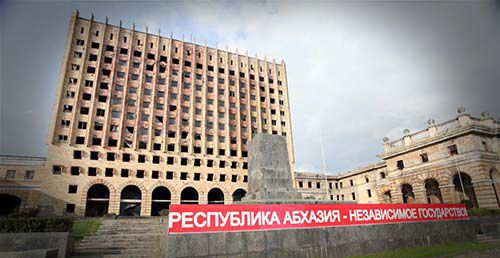Thirty Years Later: Ethnic Conflict in the Former Soviet Union
- Dates
- Thursday 7 June 2018 (09:30-18:30)

This year marks the 30th anniversary of the outbreak of the conflict in Nagorno-Karabakh, the first in a series of inter-ethnic and secessionist wars to arise in the final years of the Soviet Union, among others in Abkhazia, South Ossetia, Transnistria, and Chechnya.
Three decades onwards, most of these conflicts remain stubbornly unresolved: the Minsk Group has not been able to achieve a normalisation of relations between Armenia and Azerbaijan; the 2008 Russo-Georgian war has put both Abkhazia and South Ossetia firmly outside of Tbilisi’s control; and part of Moldova’s territory is still governed by the de-facto republic of Transnistria. Meanwhile, the North Caucasus has been imperfectly ‘pacified’, and new conflicts have emerged in Ukraine.
Questions and issues addressed include:
- Implications for/of theories of ethnic conflict and civil war
- Evolving nationalisms and national identities
- The geopolitical context of post-Soviet ethnic conflicts
- Gender and ethnic conflict
- Postcolonial perspectives
- Secession, sovereignty and the status of de-facto states
- Religion and ethnic conflict
- Impacts of territorial conflict on regime politics and interactions with democratization
This event is free to attend and would be of particular benefit to scholars and students working on ethnic conflict and attendant issues, as well as the former Soviet Union.
Please RSVP to Kevork Oskanian: k.oskanian@bham.ac.uk
Event programme (subject to change)
08:45-09:30 – Welcome / Registration / Coffee and Tea
09:30-11:00 - Session 1: External Actors and the Geopolitical Context
Nagorno-Karabakh as a tool for Russian post-colonial domination - Murad Muradov and Rusif Huseynov
Perceptions of the European Union’s Role as a Security Actor in the South Caucasus – Laure Delcour and Kataryna Wolczuk
Understanding the Globalizing Karabakh Conflict in Alliance Politics Prism – Eduard Abrahamyan
Dealing with the Past in the Official Mediation Processes of Intractable Conflicts. The Case of the Armenian-Azerbaijani Conflict – Lavinia Badulescu
11:00-11:15 – Coffee Break
11:15-12:45 – Session 2: Ethnic Conflicts, Reconciliation, and Insecurity
Refining the Line of Distinction between Ethnic Conflict and Security Dilemma: towards a Theory of Identity Conflict – Kavus Abushov
Sketching the Power of Emotions in the Prolonged Conflict in Nagorny Karabakh – Ulrike Ziemer
Challenges for International Peacebuilding Initiatives in post-Soviet De Facto States: Lessons Learned from Abkhazia and Transnistria – Sebastian Relitz
Making Sense of Defeat? Engagement and Disengagement Trajectories of
Georgian former Participants to the Armed Conflict in Abkhazia (1992-1993) – Silvia Serrano & Anne Le Huérou
12:45-13:45 – Lunch Break
13:45-15:30 – Session 3: Ethnic Conflict, Secession and Stateness
Secession and Viability in Abkhazia and South Ossetia: Different Goals, Strategies, Outcomes - Giulia Prelz Oltramonti
Engagement without Recognition? Regional Organizations and Post-Soviet Secessionist Entities - Vera Axyonova and Andrea Gawrich
The Language of Political Discontent – Elene Melikishvili
“Reversing the Second Image”: Looking at Armenia’s and Georgia’s
Democratisation through the “Stateness” Issues – Sos Avetisyan
The Transformative Potential of Women Empowerment in Armenia and the de facto Nagorno-Karabakh Republic - Nona Shahnazarian
15:30-16:00 - Coffee Break
16:00-17:45 - Session 4: Mobilisation and Identity
The Ethnic Factor in Mainstream Russian Nationalism and National Identity - Matthew Blackburn
Politics of Contention and Identity: the Case of Mariupol – Hana Josticova
Why Democracy Matters: the Case of Nagorno Karabakh, in the eyes of Azerbaijanis - Leila Alieva and Bakhtiyar Aslanov“
I am Georgian, therefore, I am Orthodox”: Muslim Georgians in Adjara – Veysel Erdemli
Interpreting the Ideological Evolution of the North Caucasus Insurgency – Mark Youngman
17:45-18:00 – Closing Remarks & Dispersal